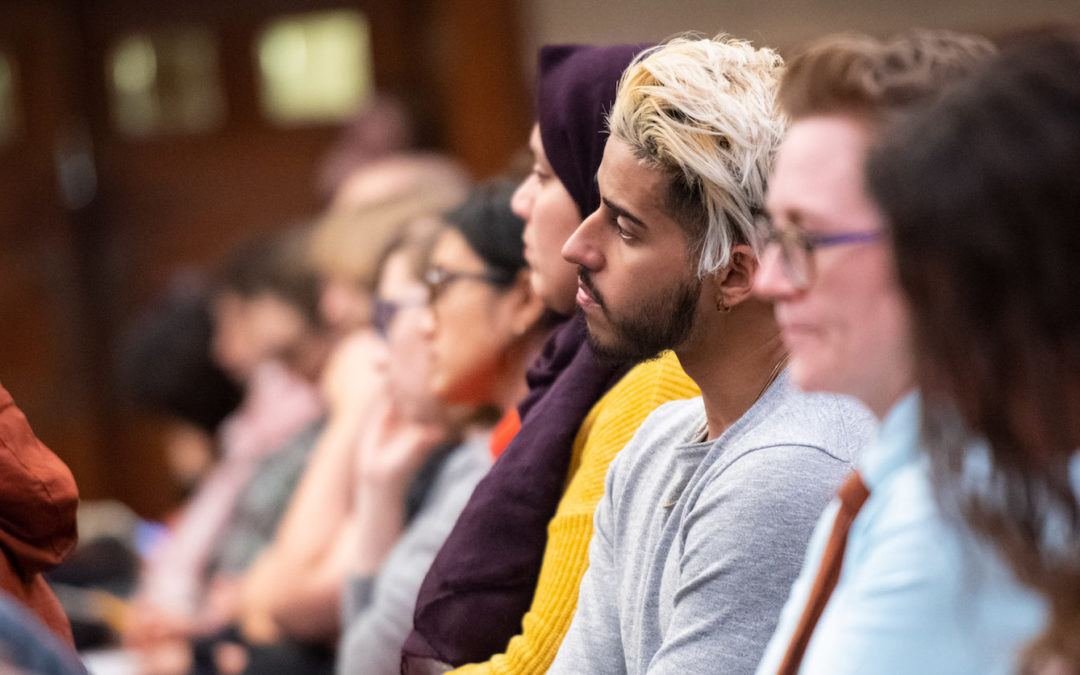By Jo Fox
Wednesday 5 February 2020 sees the launch of the IHR’s Mission and Strategy, 2020-25. This is an important moment for the Institute as it sets out its values, aims and goals for the coming decade. Here Professor Jo Fox, Director of the IHR, introduces the Institute’s new strategy and our need for a national centre for history—now more than ever.

Today we launch the Mission and Strategy of the Institute of Historical Research for the years 2020-2025. This is an important moment and an important document for all of us who value the past.
The strategy is the outcome of a careful review of the Institute’s current roles, and a wide-ranging consultation on what the IHR needs to provide for historians—from all backgrounds—in the coming decade. Today’s report encapsulates the principal findings and conclusions from this review. Behind this public version sits a further detailed statement setting out the means and timetable to realise our goals, and to which IHR staff and our partners will work over the next five years.
The IHR’s mission
Underlying this future work is the Institute’s mission. As the UK’s national centre for history, the IHR is a collaborative and publicly focused organisation for those who study the past in the 2020s. In this capacity, the Institute is simultaneously an advocate, custodian and innovator.
We exist to champion the value and importance of history; to enable and nurture the current and next generation of historians, wherever they are to be found; and to support the historical community through the care and development of our important library and archive collections, our publications and our digital resources.
We also facilitate and produce ambitious and innovative historical research. We connect, listen to and advocate for historians, mobilising our unique national and international intellectual and professional network. And we seek to engage and include scholars and the public in historical research in all its diversity and richness.

Most importantly, we do so in collaboration with historically-minded people everywhere. The Institute is a hub for innovation in the discipline and in interdisciplinary ways of thinking. We connect scholars, communities, policy-makers, artists, archives, libraries, museums and industry to create new forms of knowledge that speak to contemporary concerns and intellectual challenges. The IHR serves the national and international community of historians rather than any one institution.
There is today a glaring need for historically literate discussion and intervention on the most pressing challenges of our time. History underpins our cultures and informs our identities. Historians have a duty not only to shed light on how these identities have taken shape, but to call to account those who misuse the past in pursuit of political or other ideological ends.
The IHR will play a central role in meeting this challenge over the coming decade. We will actively engage and support historians wherever they are to be found, including those who benefit from our thriving research networks, our cross-sector partnerships, and local expertise.

Our priorities
In addition to its role as a meeting place and thinking space for historians, the Institute identifies three priorities for supporting and shaping the discipline in the 2020s. These priorities are digital history, the histories of people, place and community, and inclusive histories.
In each case the Institute will draw on its existing strengths to think and work in new ways of greatest meaning to our present concerns. In the field of digital, for example, the IHR is an established champion of technology’s value in generating and promoting new historical research. Digital is central to everything we do and we are well-placed to build on this commitment, repurposing it in the coming decade.

Our newly created Centre for the History of People, Place and Community likewise builds on the IHR’s reputation for urban and regional history, while also locating these histories in their global context and making a distinctive contribution to community engagement.
The Institute’s new focus on inclusive histories will provide a welcoming intellectual space for the further development of marginalised or ‘silenced’ histories. In this way, we seek to transform what we understand a ‘historian’ to be, working to ensure that our community of historians is rich in its diversity. Over the coming weeks on this blog, we’ll share greater detail about these priorities, and their place in our strategy.
Get involved with the IHR
It is a great privilege to be part of the IHR and especially to lead the Institute in these important and timely areas of advocacy, research and innovation. I sincerely hope that you share my commitment to the value of history, and to the IHR’s place in ensuring and facilitating its vitality and quality—at a time when this seems more urgent than ever.
I encourage you to read the IHR’s Mission and Strategy, 2020-2025 in which you’ll also discover our plans for other important aspects of the Institute’s work, including our Library, events and public engagement, research training and publishing.
I hope then you’ll get involved and become part of the Institute, and help to realise its unique place as a common home for the historically-minded and curious. We welcome historians of all kinds to take part in activities and research opportunities at the IHR—now and in the years to come.

Jo Fox is Director of the Institute of Historical Research and Professor of Modern History at the University of London.
Other posts in this series
Following Jo’s opening post in February 2020, we’ve added several more essays looking in more detail at aspects of the new IHR strategy:

